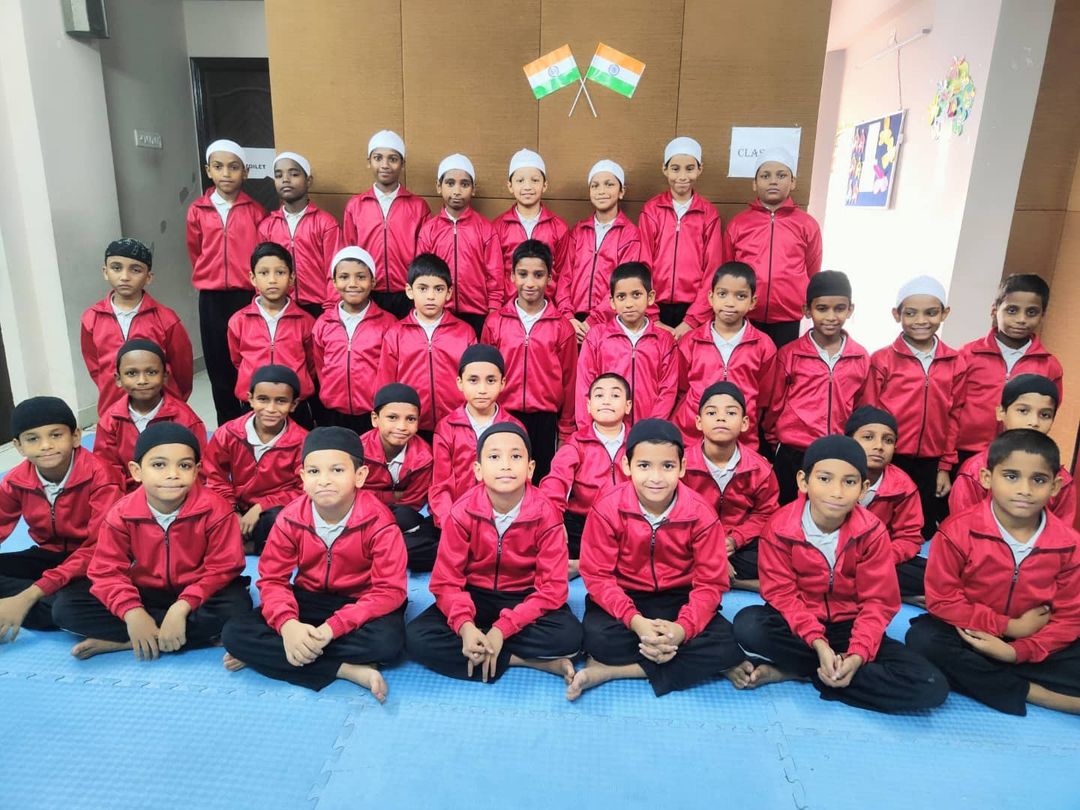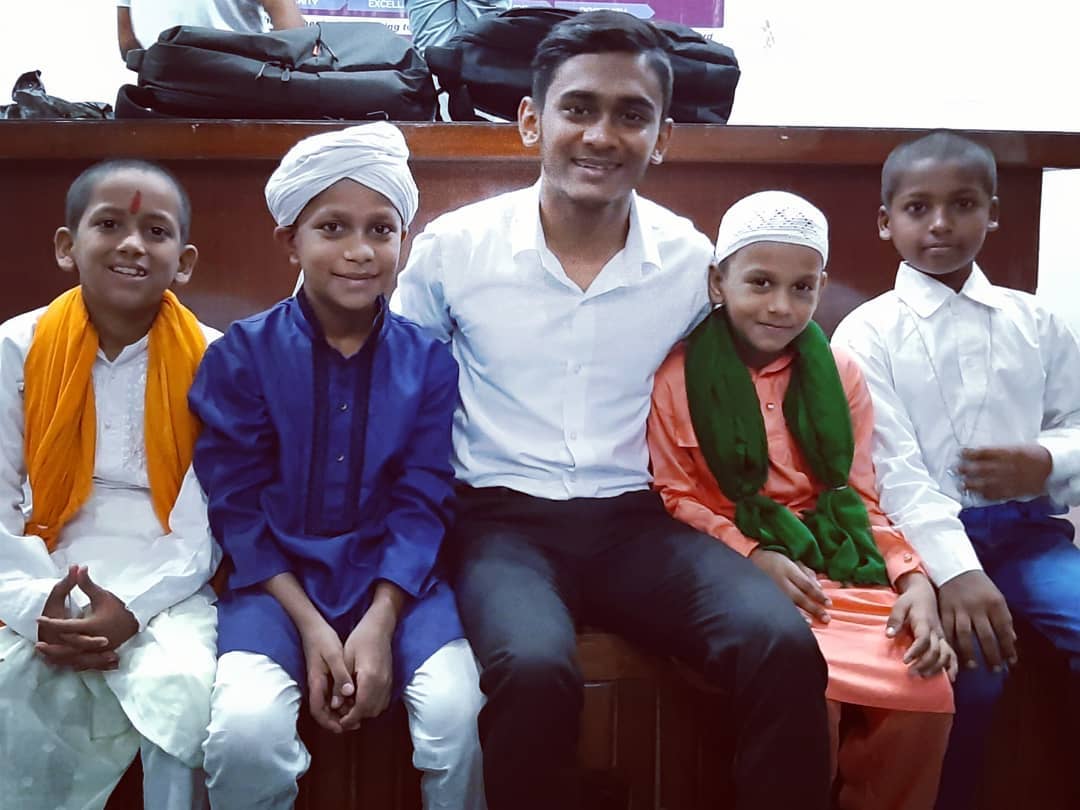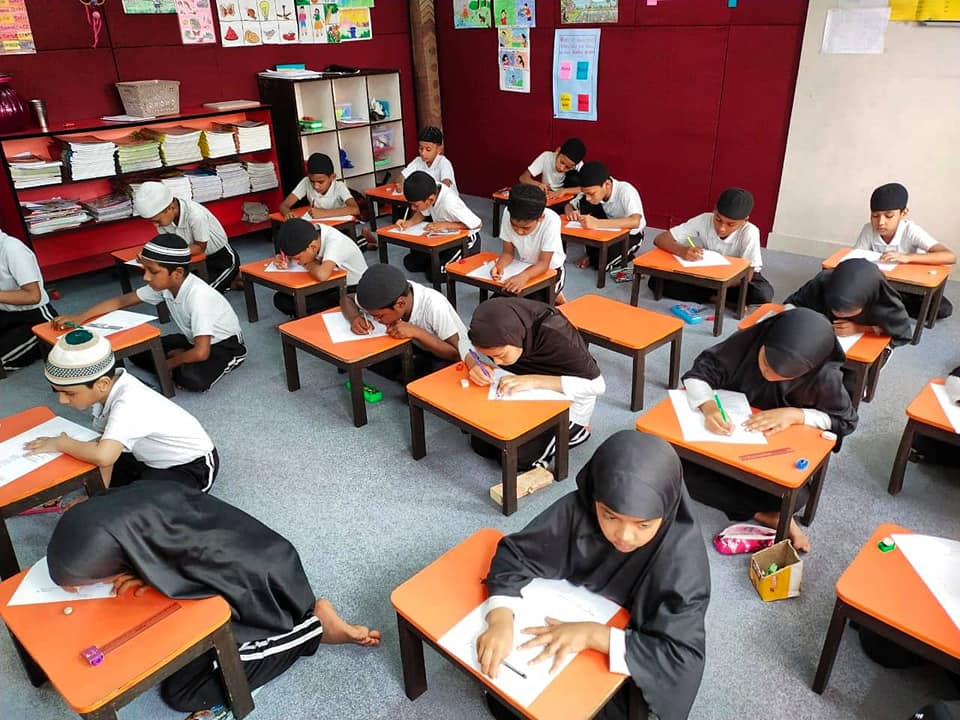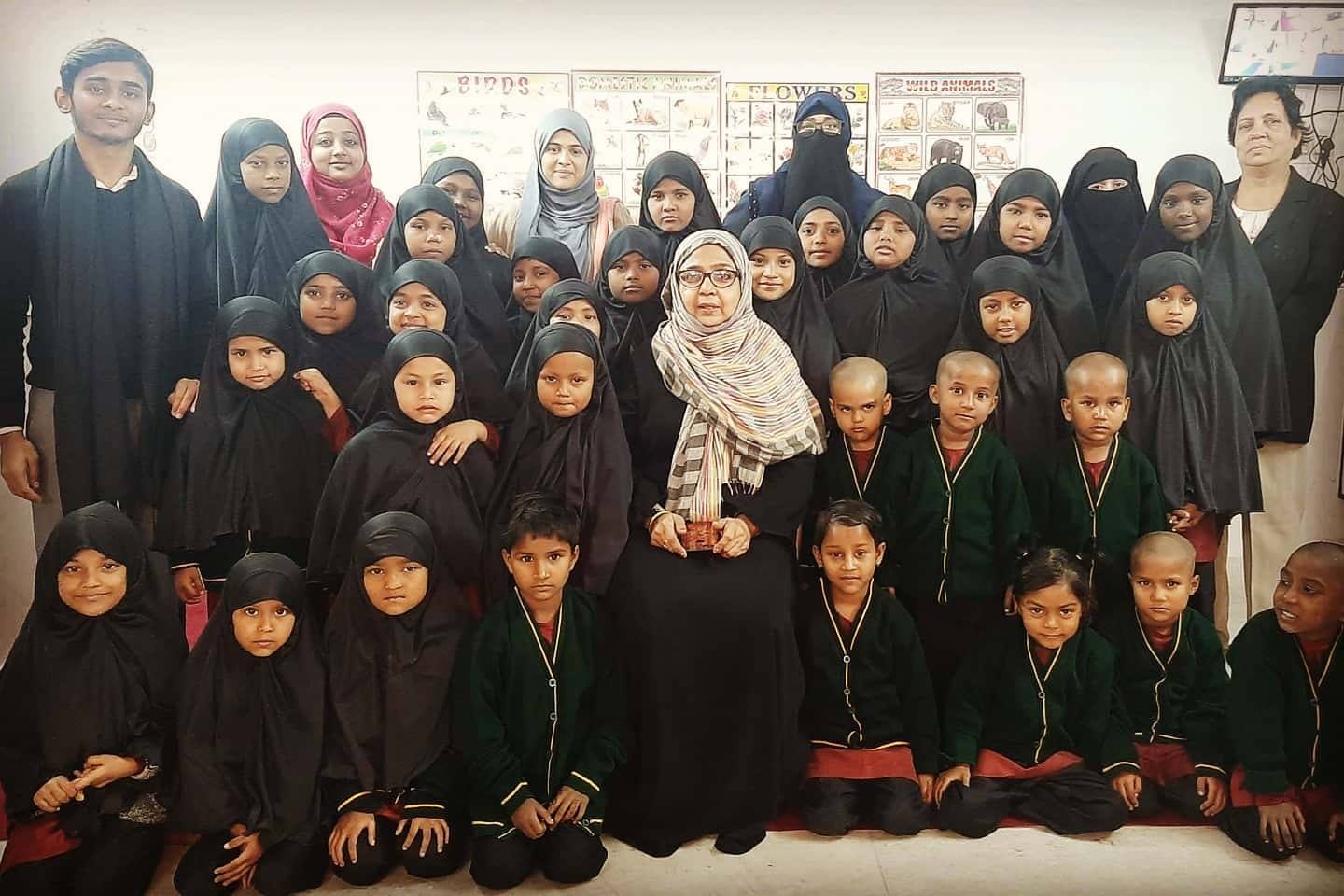Meet Wali Rahmani, whose Umeed Academy is source of inspiration for Kolkata’s underprivileged children

Wali Rahmani’s work has earned him recognition and respect and people have come forward to sponsor the students in whatever way they can.
Nikhat Fatima | TwoCircles.net
KOLKATA – Budding lawyer, human rights activist, orator, motivational speaker, social entrepreneur and a proud father to 140 children, 23-year-old Wali Rahmani hopes that one day all his children will be successful leaders and prove to be invaluable assets to the nation.
The 140 children who fondly call Wali Rahmani Abba Ji hail from different slums of Kolkata. Many of them are orphans and all of these children are from families caught in the vicious cycle of poverty.
[caption id="attachment_444163" align="aligncenter" width="1080"] Wali with his boys dressed for a skit on harmony. | Picture by arrangement[/caption]
Wali with his boys dressed for a skit on harmony. | Picture by arrangement[/caption]
Wali Rahmani was just 18 when he first took 3 kids from a slum under his wing. These 3 kids, around 3-4 years old, were orphans. Wali, their Abba Ji, washed the soiled clothes of the kids, bathed, cooked and fed them–playing the role of a mother, a father, a nanny and a maid. His determination did not waver. Gradually, he found more and more people joining him which encouraged him to start and register ‘Umeed’, which served both as an orphanage and an educational academy.
The journey of Umeed
When Wali Rahmani was just turning 18, many changes were taking place in the country which he said, "changed him as well." The assembly elections of 2017 in the state of Uttar Pradesh, which brought Yogi Adityanath as the Chief Minister, became the turning point in Wali's life and brought in its wake an energized goal and mission to work for the upliftment of the society.
Rahmani said he was "aghast that someone like Ajay Singh Bihist a.k.a Yogi Adityanath could become the CM." He took to social media to talk about the injustices, violations of human rights and atrocities that were happening in the country. This was the beginning of Wali’s political journey. Soon, his fearless voice got him thousands of followers on Youtube, Facebook and other social media.
At one point, Wali paused to reflect that he is the only one talking against the oppression and gross injustices meted to people. Where are all the other youth leaders? Why are they not standing up against injustices? He spoke to his peers but they were keen only on pursuing their education, having fun and enjoying life. They did not want to take up these issues or even talk about them.
“I realized that my suggestions did not go down well with my peers. They did not want someone to tell them to ‘do this and do that.' It became more of an ego thing,” Wali said, reminiscing the early days.
People who heard his talks on social media, his debates on the television channels looked up to him as the leader of the future. Wali, however, was not happy being a leader. He wanted more leaders in the community. According to him, a true leader is not someone who does not leave any legacy behind. He believes that a true leader creates more leaders and leaves behind a rich legacy. Instead of asking other youth to join him in the mission to raise their voice against the wrongs of society, he thought it is better to create new leaders. He believed that these will be small children who can be successfully molded to become strong leaders. He took a break from his studies for a year to work on this idea of creating future leaders.
“But where would I find these children whom I could train? Would any parent trust me enough to send the child to me? Then by chance, I came across a Hadith by our beloved Prophet (PBUH) wherein he mentioned the status of a Muslim who is kind to orphans. I felt that through this hadith, Allah was guiding me. So, I decided to take in children who had no parents,” Wali said.
“I had made up my mind that I want to be a father of 10 before I turn 20. And people laughed at me. They advised me to go study and asked me blunt questions related to my financial capability,” Wali said, “But I did not give up. It was the womenfolk who came forward to help me realize my dream”.
Wali said that he approached several people who had wealth and could easily help him but instead they scoffed at his idea.
“The very first person to help me was my mother. She believed in my dream. She was the first donor for Umeed,” Wali said while giving details of other donors who were also women.
He remembers the first donors fondly and with gratitude. One woman gave her gold finger ring because she was not earning and wanted to give what belonged to her. Wali likens this to the woman who donated her gold bangles to Sir Syed Ahmed when he was seeking donations for the Aligarh Muslim University.
Some girl students also promised monthly payments from their pocket money. And as they say, small drops of water make a mighty ocean, Wali Rahmani’s dream project began taking a concrete shape.
Today he runs the Umeed Academy in a rented apartment with 140 children. Some of these children are day scholars who are at the academy for at least 12 hours.
Many of these children are kids from slums whose parents are alcoholics, orphans who are homeless, kids who have parents but stay with their guardians to avoid the brutality that their parents either go through or make them go through, children with parents serving jail time. Some kids have homes not suitable to live in. The children of his academy are mostly from Muslim Ghettos.
Umeed Academy's vision
Wali envisions creating leaders who in turn will become capable to create more leaders. Year after year, Wali hopes, Umeed will produce leaders who will carry forward the legacy of Wali and his academy Umeed.
“Each child that graduates from Umeed shall be an institution builder and a leader. They will leave their imprints in the sands of time," he said.
Inside Umeed Academy
There are no wardens at the Umeed Academy, only house parents who take care of all the needs of the children. From the time of their enrolment to the time they pass out as students have completed their 12th standard ICSE curriculum syllabus, all their costs are borne by the academy including their residential cost, health cost, books, clothing and sports.
The focus is on the holistic development of girls and boys. For their spiritual growth, they are taught Quran and Islamic values.
The children are taught regular subjects of the school curriculum which is ICSE and apart from that, they are taught self-defence, drawing, sports, Quran, Hadith and ethics. They are encouraged to participate in many activities conducted in their academy.
[caption id="attachment_444164" align="aligncenter" width="960"] Class room in Umeed. | Picture by arrangement[/caption]
Class room in Umeed. | Picture by arrangement[/caption]
“The transformation in the children is visible. They are all so disciplined and neat that despite sharing common toilets and bathrooms, they keep it all clean,” Wali says proudly, adding, “Ask them to recite the Duas (prayers) of eating, sleeping, going out, going to the toilet, or when it rains, they will recite it.”
The house parents bring up these children as they would bring up their own, insists Wali. He also does his bit by interacting with the children every day, listening to them, talking to them and thus making strong the bond they share.
The core team members, who are his well-wishers not only guide him but also help him make the right decisions.
Asma Alam, director of Umeed, Ghazala Imam and Yusuf Haque who taught Wali at school are now part of the core committee. Others who have joined his mission are an army veteran Abhishek Mukherjee, educationists Shabana Anwar, Usha Banerjee and Mufti Anwar Khan Sargiroh.
[caption id="attachment_444165" align="aligncenter" width="1440"] Wali Rahmani, with his staff and children of his academy. | Picture by arrangement[/caption]
Wali Rahmani, with his staff and children of his academy. | Picture by arrangement[/caption]
Awards and recognitions
Wali Rahmani has appeared in various national television debates and is perhaps the youngest Indian TV debate panellist.
He says that his work for society is not social work, but "his social duty." He has been awarded the young social Hero award in 2019 at the South India NGO conference. He has also been featured as one of the young top 20 achievers in India under the age of 20 by Mumbai Coworking, and also received the Shan-e-Hindustan award by Youth Ekta Front, Delhi. His work has been acknowledged and featured by India Times, Brut India, and the Indian Express.
Many prestigious institutes and organisations have invited applications from Wali to apply for the awards but Wali Rahmani says "his work should speak for him," and does not believe in applying for any award.
"The ultimate award will be when these children grow up and lead the nation and establish peace and harmony around them," he said.
Future of Umeed
Wali Rahmani’s work has earned him recognition and respect and people have come forward to sponsor the students in whatever way they can. One generous donor has donated 2 Acre (87120 square feet) of land to Umeed Academy worth Rs 2 Crore.
Wali has plans to construct fully functional hostels on the land for students with separate dormitories for boys and girls, a housing facility for the staff members and a campus which can accommodate approximately 600-700 students at once.
The construction work has started and the cost of the entire project has been approximated at Rs 13.5 crores. Wali intends to complete this work within the next two years and requests donations for his lofty mission through donations.
To donate to Umeed Academy, click on this link.
